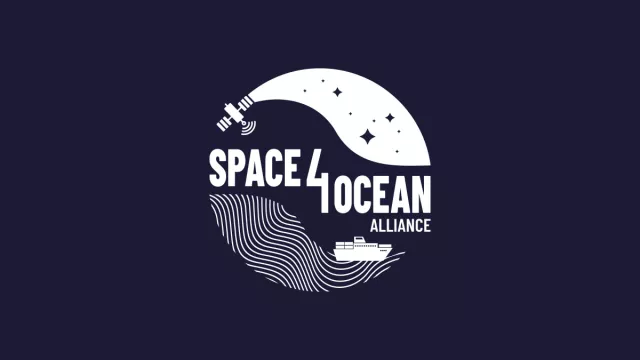The Space4Ocean Alliance (S4O), initiated by the CNES, is an international action-driven coalition aimed at connecting the space sector with marine and maritime actors to enhance ocean preservation, conservation, and protection efforts.
The Alliance was officially launched at the 3rd United Nations Ocean Conference (UNOC3) in Nice in 2025.
Key information
| Mission | Supporting sustainable ocean and coastal zone management using space data |
|---|---|
| Domain | Earth observation |
| Start date | 2025 |
| Partners | United Nations Office for Outer Space Affairs |
| Where | International |
| Lifetime | Indefinite |
Key figures
-
2025
year of creation
-
71%
of the Earth's surface is covered by ocean
-
27
initial signatories, and future members having expressed their interest
-
14
United Nations Sustainable Development Goal 14 (SDG 14)
Key milestones
- Monday, June 9 in Nice (OCA): Towards Space4Ocean Alliance - Official signing of the Alliance in the presence of all partners
- Friday, June 13 in Nice (UNOC): One Earth, One Ocean: Building a Space4Ocean Alliance - Official announcement of the launch of the Alliance; presentation of the signed declaration to Peter Thomson, Special Envoy of the United Nations Secretary-General for the Ocean
Project in brief
The Space4Ocean Alliance leverages space data, in situ measurements, and advanced digital models to address critical ocean and coastal challenges. It contributes to the achievement of global policy frameworks like the UN Sustainable Development Goals (SDGs), particularly SDG 14.
The Alliance's objectives:
- Strengthen collaboration between the space community and marine, maritime, and other relevant stakeholders to effectively meet needs and priorities for management of ocean and coastal areas.
- Addressing observational and operational gaps through innovative space missions and applications.
- Build capacities by promoting best practices, expanding access to observation data, and fostering training initiatives, with a focus on empowering frontline countries such as Small Island Developing States (SIDS) and Least Developed Countries (LDCs).
- Support the development of evidence-based local, regional and global ocean indicators of the state and health of the marine environment to guide decisions and policies.
- Support and promote the delivery of operational services corresponding to the most critical ocean issues:
- Marine Biodiversity Protection: Enhanced monitoring of Marine Protected Areas (MPAs) to safeguard ecosystems.
- Climate Change Impacts: Observation and assessment of ocean and coastal responses to climate change, natural disasters, and extreme events.
- Sustainable Blue Economy: Promotion of sustainable practices in fisheries, aquaculture, maritime energy, and decarbonized shipping.
- Pollution Control: Detection and mitigation of marine and coastal pollution.
- Coastal Zone Management: Development of tools to manage coastal ecosystems under increasing anthropogenic pressures.
- Maritime Security: Strengthened surveillance to combat illegal, unreported, and unregulated fishing activities.
CNES's role
CNES initiated the creation of the Space4Ocean Alliance. CNES also plays a central role in the Alliance by coordinating space and maritime stakeholders. It also provides its expertise and satellite data for sustainable ocean management.
Contact
Jean-Marc Delvit
jean-marc.delvit at cnes.fr




